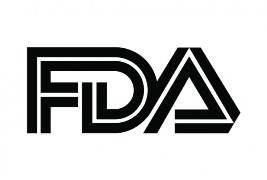 Picking apart biopharma's protracted boom, analysts tend to focus on investors' ongoing appetite for risk, readily available early-stage funding and the vibe that getting drugs approved is simply much easier than it once was. Forbes, with the help of BioMedTracker, has run the numbers on that last point, finding that the FDA has been green-lighting new drugs at an escalating rate for the past few years.
Picking apart biopharma's protracted boom, analysts tend to focus on investors' ongoing appetite for risk, readily available early-stage funding and the vibe that getting drugs approved is simply much easier than it once was. Forbes, with the help of BioMedTracker, has run the numbers on that last point, finding that the FDA has been green-lighting new drugs at an escalating rate for the past few years.
In 2008, the agency rejected about 66% of the new drug applications it received (including those seeking wider labels for marketed products), according to Forbes' analysis. By 2014, that number plummeted to just 12%. So far this year, the agency is tracking a nearly 90% approval rate, according to BioMedTracker's tally, clearing 23 drugs and rejecting just one, Merck's ($MRK) long-troubled Bridion.
All this comes in the shadow of the FDA's most recent decision: approving a twice-rejected female libido drug that many physicians say is dangerous and only glancingly effective. The pill, Addyi, has been linked to increased risks of severe low blood pressure and fainting, side effects that are exacerbated by alcohol. But despite a clamor from doctors and public health officials, the agency approved the drug, made by Sprout Pharmaceuticals and soon to be launched by Valeant Pharmaceuticals ($VRX), on a third pass.
The FDA contends that rising approval rates are evidence not of lackadaisical review but of longitudinal success. The agency had promised to speed up the process of vetting drugs and devices in its last user-fee agreement with the industry, and regulators say they have come through on those goals. Furthermore, the FDA has endeavored to become less of a black box to drugmakers, providing feedback throughout the development process to give companies an idea of what might be necessary to win approval. The net effect, according to the FDA, is a smoother process that results in more approved drugs.
It's also worth noting that the agency is not monolithic. The FDA's cancer division, led by Richard Pazdur, has repeatedly lowered the bar for new drugs in the name of giving some hope to severely sick patients. The agency has made a habit of approving new oncology treatments based on mid-stage data, indicating the drugs for only the most desperate of cancer sufferers and then requiring companies to hand in more results before considering expanding their labels. In diabetes, by contrast, the FDA has tightened its safety requirements in recent years, notably rejecting a new insulin from Novo Nordisk ($NVO) that had no trouble getting by European regulators.
And some think the agency can go farther. The 21st Century Cures Act, passed by the House last month, contains a bevy of provisions designed to bring medicines to the market more quickly. That includes allowing the FDA to approve new antibiotics based on preclinical results and data from small human trials, and encouraging a broader embrace of surrogate endpoints in drug evaluations, encouraging the agency to approve treatments based on what is effectively second-hand evidence. The bill has faced staunch criticism from public health officials and media outlets, cautioning that there can be too much of a good thing, and improperly evaluated drugs can be just as dangerous to patients as no treatments at all.
- read the report